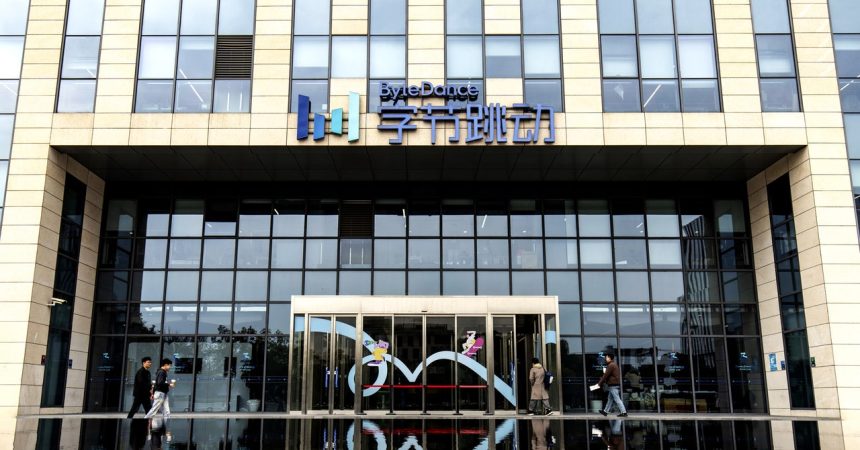The 2023 Neural Information Processing Systems (NeurIPS) conference, a premier event in the machine learning domain, found itself embroiled in controversy following its bestowal of the coveted “Best Paper Award” to a study co-authored by Keyu Tian, a former ByteDance intern facing allegations of professional misconduct. Tian, identified as a master’s student at Peking University, is the first author of “Visual Autoregressive Modeling: Scalable Image Generation via Next-Scale Prediction,” a paper proposing an innovative and efficient method for AI image generation. While the NeurIPS award committee lauded the paper’s quality, presentation, and experimental validation, the recognition ignited debate surrounding the conference’s evaluation process and the broader ethical considerations within the AI research community.
The controversy stems from allegations that ByteDance, Tian’s former employer, filed a lawsuit against him for over $1 million in damages, accusing him of deliberately sabotaging other research projects within the company. This information, initially circulating within Chinese social media, gained wider attention following the NeurIPS announcement, prompting discussions on platforms like Bluesky, HackerNews, and Reddit about the implications of awarding such a prestigious honor to an individual facing such serious accusations. Critics, including Abeba Birhane, head of the AI Accountability Lab at Trinity College, questioned whether sufficient due diligence had been performed, arguing that the award contradicted the conference’s stated commitment to ethical standards.
The NeurIPS committee responded by emphasizing that the award recognized the paper’s scientific merit, not Tian individually, highlighting the conference’s blind review process, which evaluates submissions without considering authorship. This explanation, however, did little to quell the growing unease within the AI community. The online discussions centered on the anonymous GitHub blog post that detailed Tian’s alleged misconduct, including sabotage of colleagues’ work, and urged the academic community to reconsider the award in light of these accusations. The post highlighted the potential damage to the principles of integrity and trust that underpin academic research if such allegations are ignored.
The case of Keyu Tian and the NeurIPS award raises several critical questions about the ethical responsibilities of the AI research community. Firstly, it highlights the challenge of balancing the recognition of scientific achievement with the need to address allegations of misconduct. While the blind review process aims to ensure objectivity, it does not necessarily account for ethical concerns related to the authors themselves. This incident underscores the need for a more comprehensive evaluation process that considers not only the scientific merit of a paper but also the ethical conduct of its authors.
Secondly, the controversy underscores the growing importance of accountability in the field of AI research. As AI technologies become increasingly integrated into our lives, the ethical implications of research and development become ever more critical. The incident involving Tian highlights the need for robust mechanisms to address allegations of misconduct and ensure that researchers are held accountable for their actions. This includes transparent investigation processes, clear guidelines for ethical conduct, and mechanisms for sanctions when necessary.
Finally, the situation underscores the complex relationship between academic research and industry. The involvement of ByteDance, a major player in the tech industry, adds another layer of complexity to the case. It raises questions about the potential influence of corporate interests on academic research and the need for clear boundaries between the two. The case also highlights the importance of addressing ethical concerns within corporate research environments and ensuring that companies promote a culture of integrity and accountability.
The NeurIPS controversy serves as a stark reminder that scientific progress should not come at the expense of ethical principles. The debate sparked by Tian’s award highlights the urgent need for the AI community to grapple with these challenges and develop robust mechanisms to ensure that research is conducted with integrity and accountability. As AI continues to reshape our world, ensuring ethical conduct within the field is not only desirable but essential for the responsible development and deployment of these powerful technologies. The future of AI hinges on the ability of researchers, institutions, and industry players to prioritize ethical considerations alongside scientific advancements.
The incident serves as a valuable learning opportunity for the AI community. It compels a critical examination of existing evaluation processes, highlights the need for robust mechanisms to address allegations of misconduct, and underscores the importance of fostering a culture of ethical conduct within both academic and industry research settings. The lessons learned from this controversy can help shape future policies and practices, ensuring that the pursuit of scientific advancement is aligned with the highest ethical standards. Ultimately, the responsible development and deployment of AI technologies depend on the commitment of the entire community to uphold principles of integrity, accountability, and transparency.



